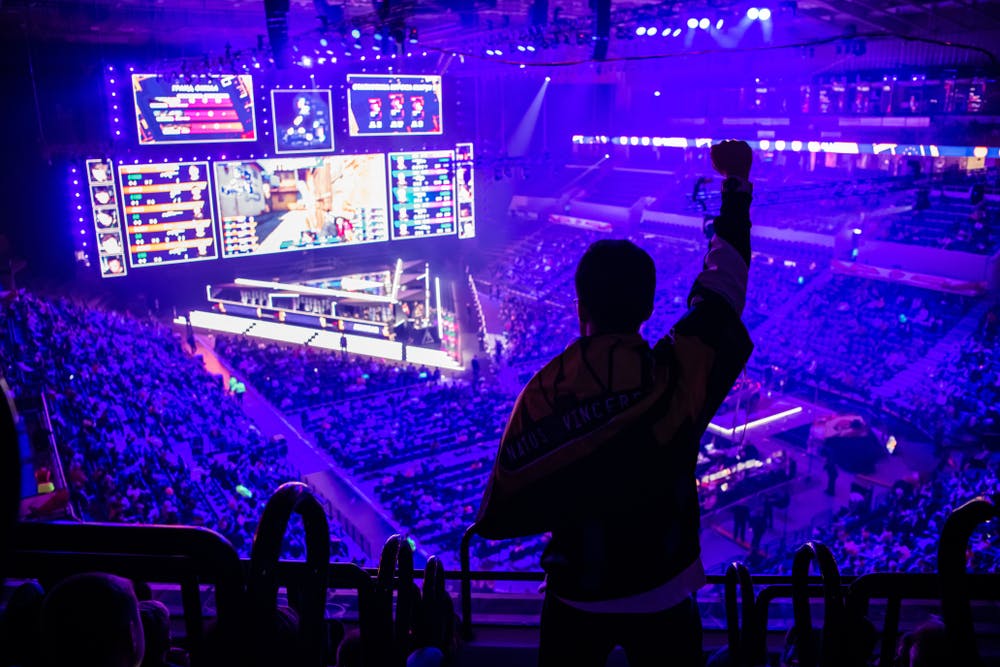Physical Address
304 North Cardinal St.
Dorchester Center, MA 02124
Physical Address
304 North Cardinal St.
Dorchester Center, MA 02124

Esports might have had a difficult year navigating the ongoing Covid-19 pandemic and losing live event revenue in the process, but they could more than makeup for it when wagering is factored in In fact, esports gambling could end up being a multi-billion dollar this year alone and has the potential for rapid growth over the next couple of years.
According to The State of esports betting report in 2020,” the industry could make 12-15 billion dollars by the end of 2020 in wages. This is up from 5.5 billion in 2016 and could in large part be from the number of people that have started taking part in this activity.
Unfortunately for esports though, the industry is starting to come under fire for these statistics and the young demographic that their sport targets. One report from TNW.com claims that esports is quietly cultivating a whole new generation of gamblers and that some of their marketing material for waging sites are to blame.
Now, it is worth mentioning that The Gambling Commission released a report in 2019 that claims 17% of gamblers surveyed were between the ages 16-24. While that might sound particularly alarming, especially given such a young age demographic, it is ultimately up to each state or country to legislate the age at which someone can legally gamble. Parents also should play a role.
Another problem with this report is that some of their other stats can’t be accounted for and might not even exist. For example, they claim that 500,00 of the gamblers surveyed were between the age of 11 and 16. They also claim that these were all problem gamblers, which means that they have an ongoing habit of betting on games.
The report doesn’t seem to mention any of this though. They also don’t seem to consider that gambling is illegal for those in The United Kingdom and The United States. Not only does this make it illegal for anyone between the ages of 11-17 to gamble, but it also seems to somewhat delegitimate this idea of cultivating young gamblers. Now, an argument could be made for the item gambling that is done during games, but that is an entirely different issue.
There is some merit to the report, however, especially when it comes to reporting that 93% of UK children play video games and by the research done into gambling advertisements. Believe it or not, esports betting has been known to use more millennial like ways to advertise to their audience, which includes memes, videos, and popular culture to hook people on taking a wager.
Furthermore, a study of esports gambling tweets done by TNW.com claims that an uncomfortable majority of people that follow these esports gambling accounts are underage. Not only does that mean an untold number of these followers are seeing these tweets every day, but they are also liking or retweeting them. This puts the ad in front of more people and more children.
Again, these are people under legal betting age that are sharing this. If nothing else These users and their friends also likely interacting with it, which could admittedly cultivate a gambler under the right conditions. The issue with jumping to that conclusion though and placing the blame on esports, in general, is that it doesn’t take other factors and individuals into consideration.
Of course, there are a plethora of different ways to help cut down on the problem of underage esports betting, but these sites should look at age restriction for following accounts and seeing certain advertisements. Social media sites also need to do a better job of letting their younger audience know the real-world ramifications of gambling and make sure they understand that the ad wants them to part with their money.
Lastly, the parents need to step up and inform themselves of what is going on. Whether that be by monitoring their feeds, restricting access to bank accounts, or explain the downsides of gambling, parents will need to play a role in this thing as well. Either that or risk cultivating a new crop of problem gamblers.
In the end, the buck needs to stop with these social media company’s and unaware parents This is an issue that needs to be addressed but doesn’t seem to be as bad as some are reporting. While that may change over time as the link between these ads and gamers coming of age gets researched more, there is no point in villainizing esports and turning it into an epidemic at this point.